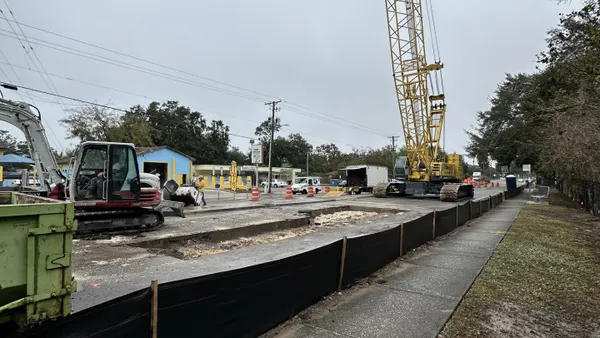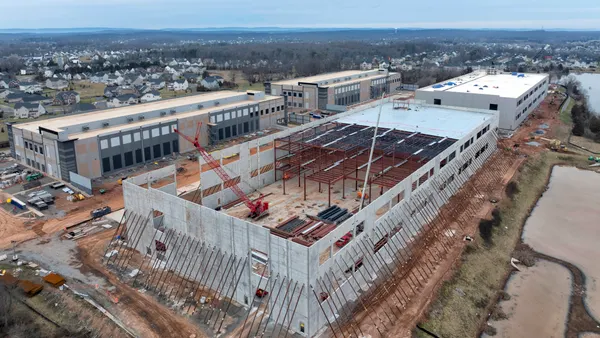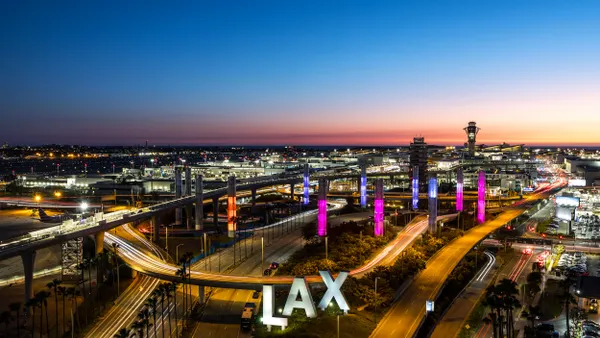UPDATE: President Barack Obama signed the five-year, $305 billion highway bill on Friday, just before the most recent short-term funding patch expired. The bill marks the first long-term transportation spending measure in a decade.
Prior to signing the bill Friday, Obama said, "This bill is not perfect, but it is a commonsense compromise, and an important first step in the right direction."
UPDATE: The Senate voted 83-16 Thursday night to pass the Fixing America’s Surface Transportation Act.
UPDATE: The House voted 359-65 Thursday afternoon to pass the $305 billion, five-year transportation funding measure. All 65 votes against the highway bill were from Republicans, many of whom opposed the measure's inclusion of the Export-Import Bank reauthorization.
Dive Brief:
- Congressional negotiators from the Senate and House have agreed to a $305 billion, five-year highway bill. The agreement still does not solve how Congress will pay for the bill long-term, as legislators acknowledge gas tax revenue, which supports the Highway Trust Fund, will not be enough.
- According to the Hill, the Fixing America’s Surface Transportation Act authorizes approximately $205 billion for highways and $48 billion on transit projects.
- If enacted, this highway bill will be the longest in a 20-year cycle of short-term extensions and patches. It also renews the Export-Import Bank through September 2019, sets traffic safety priorities, provides funding for regional buses and ferries, and sets up a fund guarantee program for large freight projects.
Dive Insight:
This is just the latest leg of a long and arduous journey for those anxiously awaiting the day Congress would agree on a long-term highway bill. With each short-term measure, Washington has sent a message of uncertainty to the construction industry. The Associated General Contractors of America has partially attributed past low construction employment numbers to a lack of a bill, and Caterpillar reported that Congress' inaction has even affected the company's sales.
This newly agreed-upon bill knocks one year and $20 billion off the House’s measure, but it still should send a signal to the industry that stability is waiting in the wings. In addition, the nation's infrastructure needs a reliable flow of funds. In fact, in a recent USA Today editorial, Brendan Bechtel, president of the Bechtel Group, implored federal and state officials to prioritize the nation’s "crumbling" infrastructure.
With this bill Congress has moved away from the principle of user-based funding and has agreed to use revenue from outside the transportation arena, such as selling oil from the U.S. emergency stockpile and using surplus Federal Reserve funds.
The Wall Street Journal noted that even those glad about the passage of a bill will likely won't be pleased with the idea of paying for it with funds from outside the transportation sector.
Even though Greg Cohen, president and chief executive of the American Highway Users Alliance, told The Journal he is "really happy" about a five-year bill, he said, "This program traditionally has been a user-pay program, but the revenue coming in has not kept pace with inflation and with the cost of construction. So they found something, which is great, but it is not a sustainable plan going forward."










